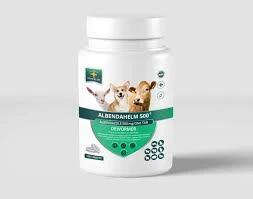- Afrikaans
- Albanian
- Amharic
- Arabic
- Armenian
- Azerbaijani
- Basque
- Belarusian
- Bengali
- Bosnian
- Bulgarian
- Catalan
- Cebuano
- Corsican
- Croatian
- Czech
- Danish
- Dutch
- English
- Esperanto
- Estonian
- Finnish
- French
- Frisian
- Galician
- Georgian
- German
- Greek
- Gujarati
- Haitian Creole
- hausa
- hawaiian
- Hebrew
- Hindi
- Miao
- Hungarian
- Icelandic
- igbo
- Indonesian
- irish
- Italian
- Japanese
- Javanese
- Kannada
- kazakh
- Khmer
- Rwandese
- Korean
- Kurdish
- Kyrgyz
- Lao
- Latin
- Latvian
- Lithuanian
- Luxembourgish
- Macedonian
- Malgashi
- Malay
- Malayalam
- Maltese
- Maori
- Marathi
- Mongolian
- Myanmar
- Nepali
- Norwegian
- Norwegian
- Occitan
- Pashto
- Persian
- Polish
- Portuguese
- Punjabi
- Romanian
- Russian
- Samoan
- Scottish Gaelic
- Serbian
- Sesotho
- Shona
- Sindhi
- Sinhala
- Slovak
- Slovenian
- Somali
- Spanish
- Sundanese
- Swahili
- Swedish
- Tagalog
- Tajik
- Tamil
- Tatar
- Telugu
- Thai
- Turkish
- Turkmen
- Ukrainian
- Urdu
- Uighur
- Uzbek
- Vietnamese
- Welsh
- Bantu
- Yiddish
- Yoruba
- Zulu
Nov . 08, 2024 10:20 Back to list
Ivermectin Injectable Solution for Cattle Health and Parasite Control Management
Ivermax Injectable for Cattle A Comprehensive Overview
Ivermax injectable is a widely recognized veterinary pharmaceutical product primarily used in cattle for the control of various parasitic infections. It contains the active ingredient ivermectin, which is an antiparasitic agent effective against a broad spectrum of internal and external parasites. Understanding the significance, application, dosage, and safety of Ivermax injectable is crucial for farmers and veterinarians aiming to maintain optimal health and productivity of cattle herds.
The Importance of Parasitic Control in Cattle
Cattle farming is a vital component of the agricultural industry, significantly contributing to the global economy. However, parasitic infections pose a serious threat to cattle health and farm profitability. Common parasites affecting cattle include gastrointestinal roundworms, lungworms, and external parasites such as lice and mites. These parasites can lead to weight loss, decreased milk production, and overall poor health, which can ultimately result in economic losses for farmers.
Effective parasitic control is essential not only for the well-being of the animals but also for the productivity and profitability of the farm. Ivermax injectable provides a robust solution for farmers, significantly minimizing the risk of parasitic infections.
Application of Ivermax Injectable
Ivermax is typically administered parenterally, meaning it is injected subcutaneously or intramuscularly, allowing for rapid absorption and effectiveness
. The injectable formulation provides a convenient method of administration, especially in large herds where oral medications might be less feasible.The product is indicated for the treatment and control of a range of parasites, including but not limited to
ivermax injectable for cattle

- Gastrointestinal Roundworms Such as Ostertagia and Haemonchus species. - Lungworms Including Dichelobacter and Metastrongylus species. - External Parasites Such as lice, mites, and grubs.
Recommended Dosage
Proper dosage is critical for the effectiveness of Ivermax and ensuring the safety of the cattle. The usual recommended dose of Ivermax for cattle is approximately 1 mL per 50 kg of body weight, but it is essential to refer to the product labeling or consult with a veterinarian for specific dosage recommendations based on the condition being treated. Overdosing can lead to toxicity, while underdosing may not adequately control the parasitic infections.
Safety and Precautions
Ivermax injectable is generally considered safe when used according to the manufacturer's instructions. However, caution should be exercised, particularly in pregnant or lactating cattle, as well as in animals with known hypersensitivity to ivermectin. Farmers should adhere to the prescribed withdrawal times for meat and milk products to avoid any residues that could affect food safety.
Before administering Ivermax, a thorough health assessment should be conducted to ensure that the animal is a suitable candidate for treatment. Furthermore, ensuring that the injectable equipment is sterile and appropriately used will minimize the risk of introducing infections.
Conclusion
In summary, Ivermax injectable plays a crucial role in the management of parasitic infections in cattle. Its broad-spectrum efficacy, convenient administration, and relative safety make it an invaluable tool for farmers striving for healthier cattle and improved productivity. As with any veterinary medication, responsible use, proper dosage, and adherence to safety guidelines are vital for achieving the best outcomes. By prioritizing the health of cattle through effective parasitic control, farmers can enhance the sustainability and profitability of their operations. Regular consultations with veterinarians for guidance on parasitic management will further strengthen animal health strategies within cattle farming.
-
Guide to Oxytetracycline Injection
NewsMar.27,2025
-
Guide to Colistin Sulphate
NewsMar.27,2025
-
Gentamicin Sulfate: Uses, Price, And Key Information
NewsMar.27,2025
-
Enrofloxacin Injection: Uses, Price, And Supplier Information
NewsMar.27,2025
-
Dexamethasone Sodium Phosphate Injection: Uses, Price, And Key Information
NewsMar.27,2025
-
Albendazole Tablet: Uses, Dosage, Cost, And Key Information
NewsMar.27,2025













